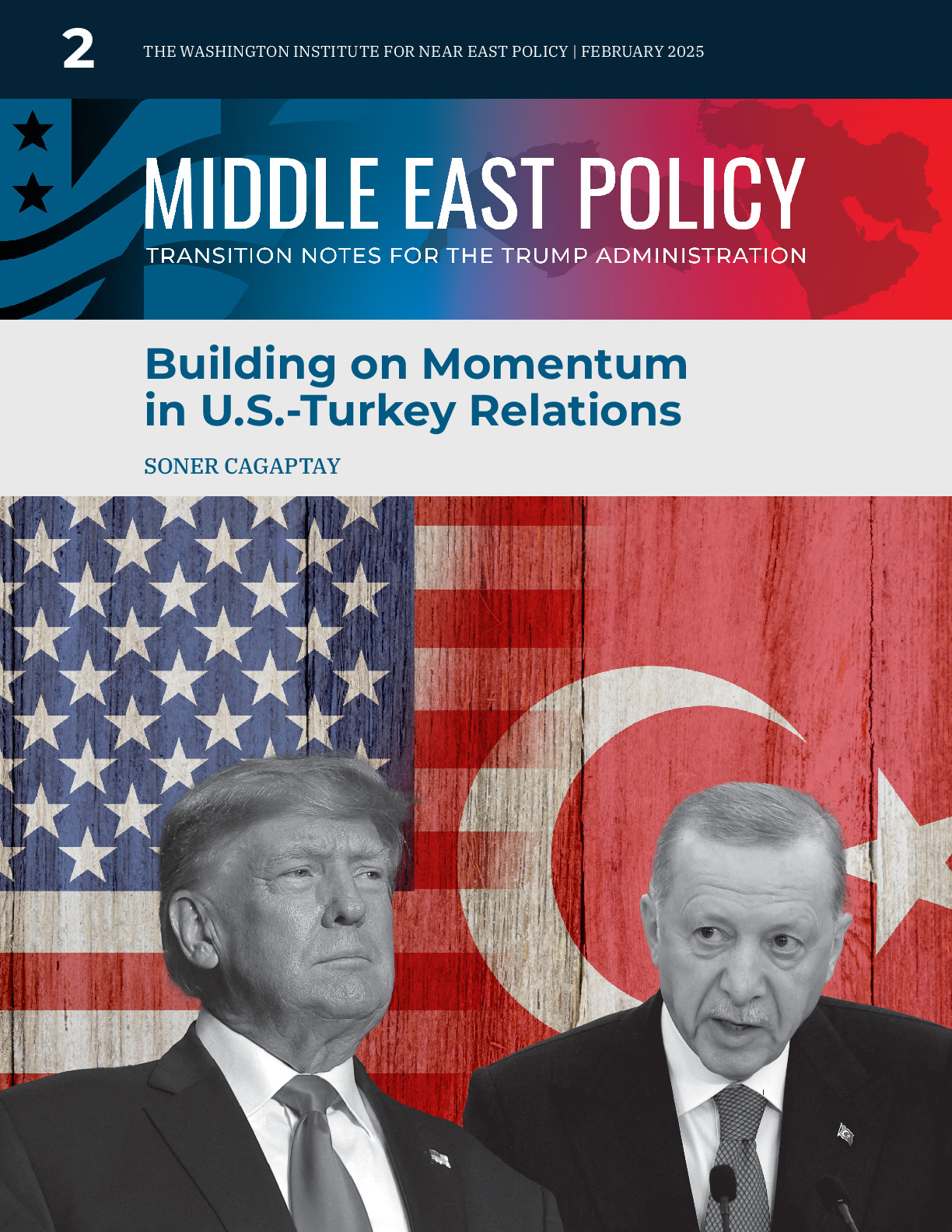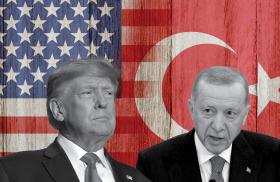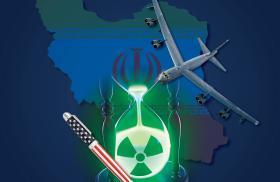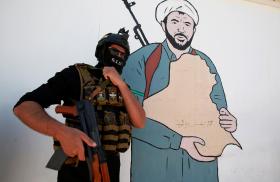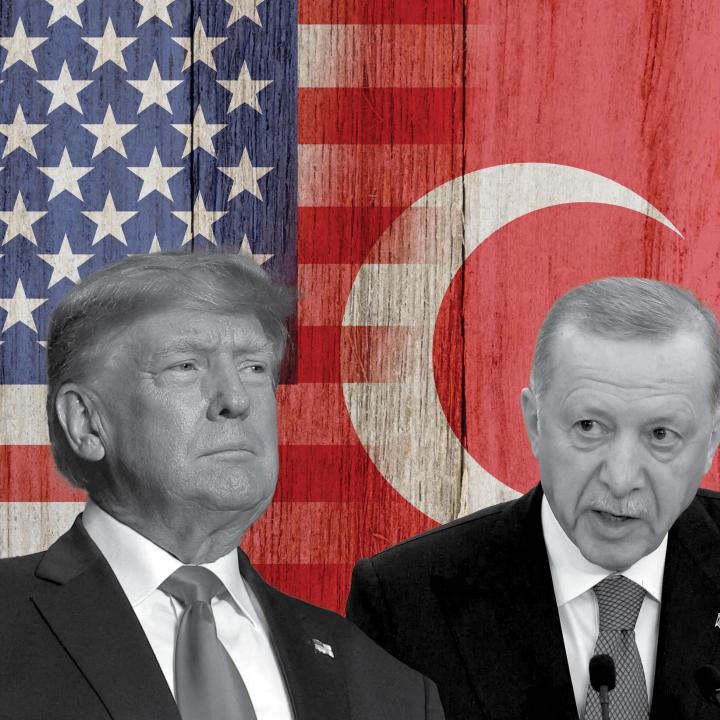

Part of a series: Transition Notes 2025
or see Part 1: Policy Steps to Prevent a Nuclear Iran
The two leaders can use their personal rapport to solve bilateral and regional problems, but they will also face tough challenges in matters such as the Israeli-Palestinian conflict and dealings with China.
In the second in a series of TRANSITION 2025 memos, Soner Cagaptay explores areas for U.S. partnership with Turkey in the Middle East and beyond. After a decade of malaise, relations between the two countries have lately recovered thanks to Turkish support for Sweden’s accession to NATO, granted in return for permission to buy U.S. F-16 fighter jets. The personal magnetism between President Trump and his counterpart, Recep Tayyip Erdogan, could smooth the way for further cooperation in military and economic areas, and also potentially help the new U.S. administration in Ukraine and Syria. But complex challenges remain, relating not only to the Syrian conflict—where Ankara and Washington backed different actors—but also to dealings with China and affinities in the Israeli-Palestinian conflict.
MIDDLE EAST POLICY TRANSITION 2025 by Washington Institute experts address challenges and opportunities for the Trump-Vance administration during a period of extraordinary change in the Middle East. A primary challenge will be countering Iran’s march toward the bomb. Also critical will be determining a sustainable U.S. force posture in the region and updating America’s counterterrorism mission. Opportunities, meanwhile, are suddenly ample after blows to the “axis of resistance” and include the imperative to forge a better relationship with Turkey, which is set to be an influential player in post-Assad Syria.
This project was supported by Tony and Vanessa Beyer, sponsors of the author's fellowship, and Madeline and Michael Silverman, sponsors of his research assistant.

